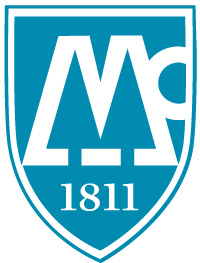 In a much-awaited decision released this week, the state land court has denied McLean Hospital’s appeal of a town decision against a plan to put a 12-bed residential facility for boys in a residential property on Bypass Road.
In a much-awaited decision released this week, the state land court has denied McLean Hospital’s appeal of a town decision against a plan to put a 12-bed residential facility for boys in a residential property on Bypass Road.
The saga began in 2016 when the hospital purchased the 6,700-square-foot home at 22 Bypass Rd. with plans to house boys age 15-21 for transitional care as part of its 3East program. McLean argued that this constituted an educational use of the property, which made it exempt from town zoning restrictions. The so-called Dover Amendment in state law requires towns to permit educational and religious facilities in areas not zoned for such uses.
Citing previous court cases, town attorney Joel Bard said in a May 2016 letter that he believed McLean’s use was educational and thus permitted, so then-Building Inspector Dan Walsh gave the initial go-ahead in a letter of his own in July 2016. But a group of neighborhood residents successfully appealed to the Zoning Board if Appeals, which overruled Walsh. McLean then filed suit to appeal the ZBA decision in late 2017, and the case went to trial in October 2017.
McLean argued that its program included a curriculum to teach clients coping skills drawn from dialectical behavior therapy. “But to conclude that the structure of the program essentially transforms a therapeutic program into an educational one for the purposes of Dover Amendment protection would, in fact, elevate form over substance,” the court ruled. “The primary and predominant purpose of the 3East Boys Program is the treatment of a serious mental condition. Accordingly, this court finds and rules that McLean’s 3East Boys Program is not an educational use entitled to the benefits and protections of the Dover Amendment.”
“We are gratified by the decision of the court which affirms the thoughtful approach of our ZBA, and its careful analysis of the facts, and upholds the integrity of the town’s bylaw,” the Board of Selectmen said in a statement. “The nature of the project raised passions on both sides, among those who were concerned, and among those who were generally supportive of McLean’s proposal… In the end, we believe the process yielded the right result for our community.
“We always said this was a medical program that should not be allowed in a residential area under the educational exemption,” said Steve Kanner, the primary organizer of the residents who fought McLean’s proposal. “We’re certainly highly pleased to see the court came down and said exactly that, including referring to a possible overreach of the argument.”
Kanner called the ruling “a ringing affirmation of the correctness of the ZBA’s decision,” adding, “I would hope there would be some institutional reflection on the original decision [that McLean’s proposal was allowable] and how and why it came about.”
Selectmen sounded a similar note in their statement. “Going forward, we will reflect on the process and evaluate what worked well and where there are opportunities for improvement, to help inform our response should a similar proposal come forward in the future.”
Special counsel Jay Talerman, who represented the town during the lawsuit, declined to comment on the decision but said town officials and attorneys planned to meet Friday to discuss it.
“I’m happy for the decision. It upheld the analysis and decision that the ZBA made in its very careful review,” said Joel Freedman, who as ZBA co-chair was one of the defendants in the case. “It probably breaks some new law in the area of the Dover amendment and the limits of it, which is interesting.”
Dr. Philip Levendusky, senior vice president for business development and communications and director of McLean’s Psychology Department, and Diane Tillotson, McLean’s attorney in the case, did not return calls or emails Wednesday requesting comment.
Leave a Reply